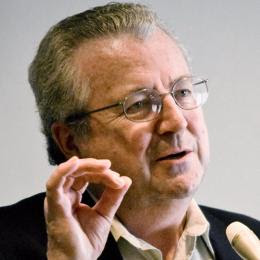 Paralysis seen on energy. Politics and energy go hand in hand, but often to the detriment of Americans who want solutions and get only "partisan paralysis," former Shell Oil Co. President John Hofmeister said Monday.
Paralysis seen on energy. Politics and energy go hand in hand, but often to the detriment of Americans who want solutions and get only "partisan paralysis," former Shell Oil Co. President John Hofmeister said Monday.Hofmeister joined several other energy executives and experts at an energy policy forum in Houston sponsored by U.S. Rep. Kevin Brady, R-The Woodlands.
Having retired from Shell on July 1, Hofmeister founded a nonprofit policy advocacy firm, Citizens for Affordable Energy, to promote comprehensive, nonpartisan policy to shore up the nation's energy security.
"The politicization of energy is only beneficial to those running for office," leaving Americans listening to debate that rarely produces effective policy, Hofmeister said.
"If our national leadership cannot come to grips with a problem of this severity, there's something wrong with the process and the people," he said.
Issues that get mired in political back-and-forth, forum participants said, include expansion of offshore drilling to areas currently off limits and construction of new transmission lines across states to handle more wind and solar electricity generation.
Amy Myers Jaffe, an energy fellow at Rice University's James A. Baker III Institute for Public Policy, said energy security remains an urgent issue even though crude futures have fallen more than 20 percent in recent weeks from a high near $150 a barrel and gasoline has dropped from more than $4 a gallon.
On Monday, light, sweet crude for September delivery closed down 90 cents at $112.87. Regular gasoline sold for an average $3.74 a gallon nationwide, down 35 cents in a month, AAA reported. The average in Houston was $3.54, compared with $3.96 a month ago.
The U.S. reacted to the higher prices this summer in part by reducing demand. Last week the Federal Highway Administration said U.S. drivers were on the road in June for 12.2 billion fewer miles than a year ago, a 4.7 percent decline.
"Every time the price drops, Americans just say, 'OK, the problem is solved,' " Jaffe said. "Just having prices ease up a little bit at the pump did not solve the problem."
She noted that prices reached this year's highs without disruptions of supply from the Middle East or Russia. If drivers react to the recent softening of prices by falling back into old patterns, "we'll be right back to the pump price that made you uncomfortable originally," she said.
Brady added that growing global demand and tight supplies continue, and that other factors contributed to the recent softer prices. These include a strengthening dollar, speculation and market reaction to the slowing U.S. economy.
"The price drop doesn't change the fundamental problems" of U.S. dependence on foreign oil, growing demand in burgeoning economies such as China and India, tight supply and falling production, Brady said.
Democrats opposed to expanded offshore drilling say oil companies should drill on 68 million acres of federal lands and waters they already lease but aren't developing.
But Stuart Strife, vice president of exploration for Anadarko Petroleum Corp., said that the more area is available for exploration, the better chance companies have of striking oil.
Hofmeister noted that the transportation industry relies on oil, from trucking and airlines to personal vehicles and shipping. Also, oil is so ubiquitous that it's in asphalt, building materials such as shingles, cosmetics, plastics and other materials people use every day.
A longtime advocate of energy policy that promotes a wide variety of energy sources, from oil and gas to hydrogen, biofuels, wind, solar and nuclear, Hofmeister said the nation can't just switch from petroleum.
Infrastructure must be built, such as gasoline stations with new storage tanks that hold compressed natural gas for gas-fired cars or E-85 pumps for fuel that is 85 percent ethanol.
"It's in the infrastructure of your daily life," he said of petroleum. "It's unrealistic to suggest that alternatives are right around the corner when the infrastructure is not there."
Alternatives will likely start replacing oil and gas over the next two decades, Hofmeister said.
"That's different than a two- to four-year election cycle," he said.
Source: Houston Chronicle| by KRISTEN HAYS
Blogalaxia:Actualidad fotolog Technorati:UPDATE Bitacoras:HidrocarburosagregaX:Diario
No comments:
Post a Comment